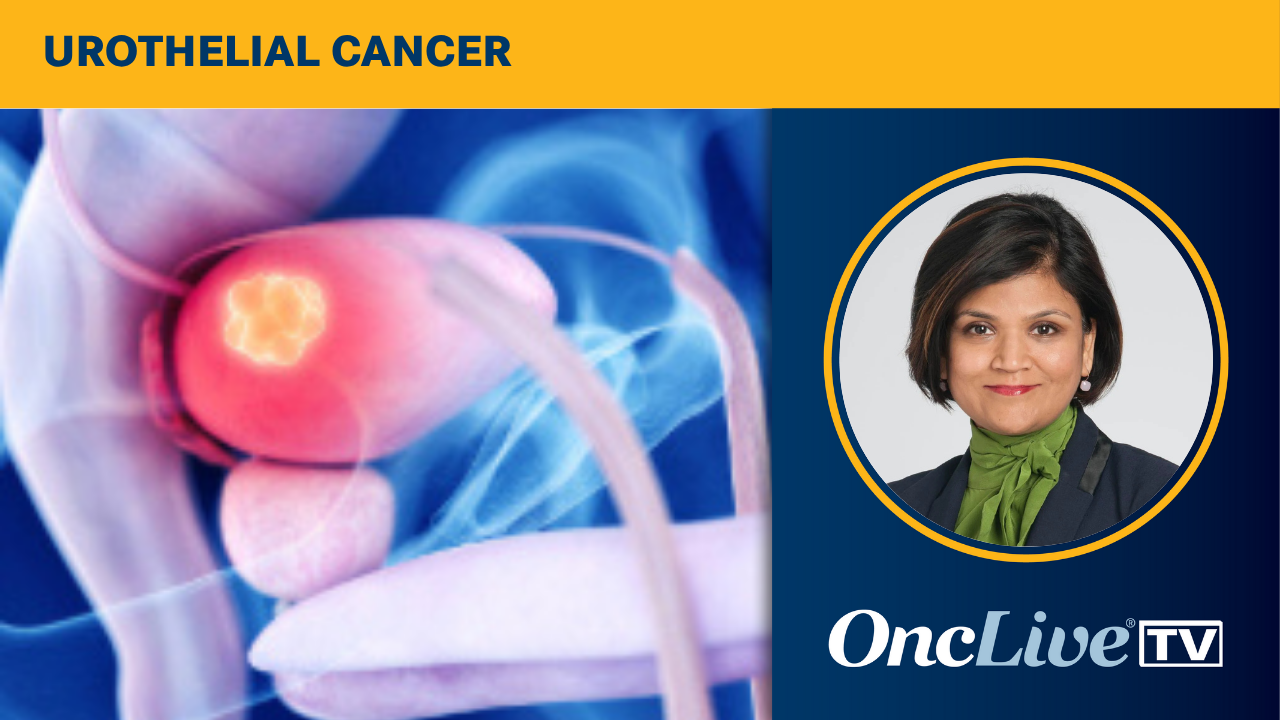Health
Gupta Highlights Promising Outcomes of Enfortumab Vedotin and Pembrolizumab

Dr. Shilpa Gupta, the director of Genitourinary Medical Oncology at the Taussig Cancer Institute and coleader of the Genitourinary Oncology Program at the Cleveland Clinic, recently outlined future research directions for the combination therapy of enfortumab vedotin (Padcev) and pembrolizumab (Keytruda) in treating urothelial carcinoma. This discussion took place during the 2025 Genitourinary Cancers Symposium, where significant findings were presented from the phase 3 EV-302/KEYNOTE-A39 trial (NCT04223856).
The trial results indicated that treatment-naive patients suffering from locally advanced or metastatic urothelial carcinoma who received the combination therapy experienced a notable overall survival (OS) benefit compared to those who received standard chemotherapy. Specifically, the study reported a hazard ratio (HR) of 0.51 (95% confidence interval [CI], 0.43-0.61; nominal 2-sided P = .00001) for OS. Additionally, patients on the combination therapy showed a significant improvement in progression-free survival (PFS) with an HR of 0.48 (95% CI, 0.41-0.57; nominal 2-sided P < .00001) when compared to chemotherapy alone.
Key Findings and Implications for Treatment
The OS benefit from enfortumab vedotin combined with pembrolizumab was consistent across several pre-specified patient subgroups. Notably, the most substantial advantage was observed in patients with an Eastern Cooperative Oncology Group (ECOG) performance status of 0, yielding an HR of 0.394 (95% CI, 0.296-0.524).
Dr. Gupta emphasized that the safety profile associated with this combination regimen was in line with previous findings, revealing no unexpected safety signals. This consistency reinforces the treatment’s potential as a standard of care option for this specific patient population.
Moving forward, researchers plan to investigate the outcomes of patients who achieved responses to the treatment, as well as assess any necessary dose modifications. Dr. Gupta noted that earlier results suggested the possibility of maintaining the overall survival benefit with fewer treatment cycles, which could have significant implications for patient care.
The promising data presented at the symposium highlights a potential shift in the treatment paradigm for urothelial carcinoma, offering hope for improved outcomes among patients. As ongoing research continues to explore the nuances of this combination therapy, the medical community remains optimistic about its role in enhancing patient survival and quality of life.
-

 Science2 weeks ago
Science2 weeks agoResearchers Challenge 200-Year-Old Physics Principle with Atomic Engines
-

 Politics2 weeks ago
Politics2 weeks agoNHP Foundation Secures Land for 158 Affordable Apartments in Denver
-

 World4 days ago
World4 days agoBoeing’s Aircraft Production: Assessing Numbers and Challenges
-

 Health2 weeks ago
Health2 weeks agoNeuroscientist Advocates for Flag Football Until Age 14
-

 Lifestyle2 weeks ago
Lifestyle2 weeks agoLongtime Friends Face Heartbreak After Loss and Isolation
-

 Entertainment4 days ago
Entertainment4 days agoSyracuse Stage Delivers Lively Adaptation of ‘The 39 Steps’
-

 Science4 days ago
Science4 days agoAI Misidentifies Doritos Bag as Gun, Triggers Police Response
-

 Lifestyle4 days ago
Lifestyle4 days agoRed Bluff High School’s Elli Nolan Named Rotary Student of the Month
-

 Lifestyle3 days ago
Lifestyle3 days agoTrump’s Push to Censor National Parks Faces Growing Backlash
-

 Business2 weeks ago
Business2 weeks agoSpirit Airlines Cuts Workforce with Furloughs for 365 Pilots
-

 World2 weeks ago
World2 weeks agoGlobal Military Spending: Air Forces Ranked by Budget and Capability
-

 Top Stories5 days ago
Top Stories5 days agoUrgent Search for Suspect Who Exposed Himself to Teen Girl









